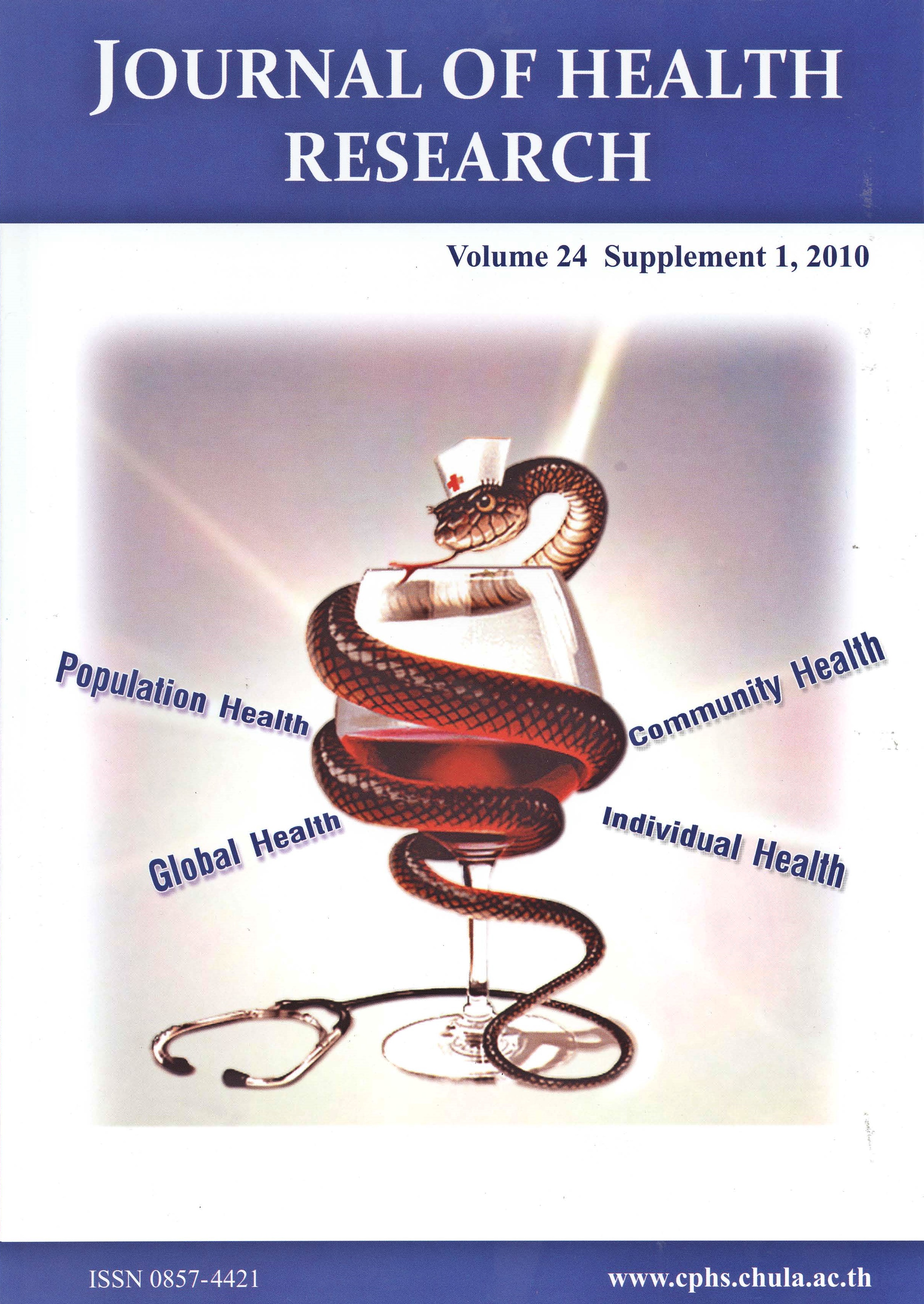The Impact of 2008-2009 Recession on the Health System of Thailand
Keywords:
Health system, ThailandAbstract
The 2008-2009 worldwide economic recession is threatening the sustainability of a well-developed public and private health care system in Thailand. Among the many problems evolving from the recession, which the Thai government needs to address are declining public health budgets, increasing unemployment and demand for health services, political pressure to limit free trade, a heavily indebted private health system unable to sustain ongoing services, a somewhat restrictive WTO legal and regulatory framework, and diminishing assistance from private and foreign sources of support. In addition, the expansion of transnational business activity in Thailand as home markets shrink or become increasingly regulated might also threaten the affordability of domestic health services, medicines and equipment. The purpose of this paper, therefore, is both to identify major elements of the health system in Thailand that are at risk as a result of the current economic environment, and to provide general proposals as to how the Thai government might deal with the challenges it faces. The paper is meant to be a catalyst for helping to strengthen Thailand’s health care services within the context of His Majesty the King’s “Self-Sufficiency” philosophy. This philosophy encourages individuals and nations to use only what they need and to avoid conspicuous consumption, it is a most appropriate context for dealing with the current situation both in Thailand and globally.Downloads
Published
2018-11-23
How to Cite
Pongpanich, S. (2018). The Impact of 2008-2009 Recession on the Health System of Thailand. Journal of Health Research, 24(Suppl. 1), 71–76. retrieved from https://he01.tci-thaijo.org/index.php/jhealthres/article/view/157034
Issue
Section
ORIGINAL RESEARCH ARTICLE







